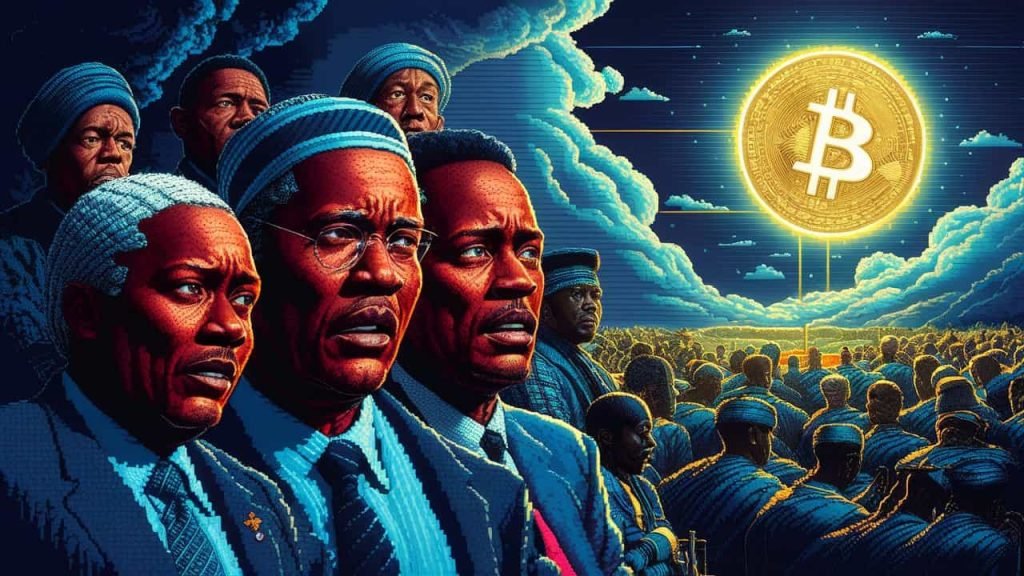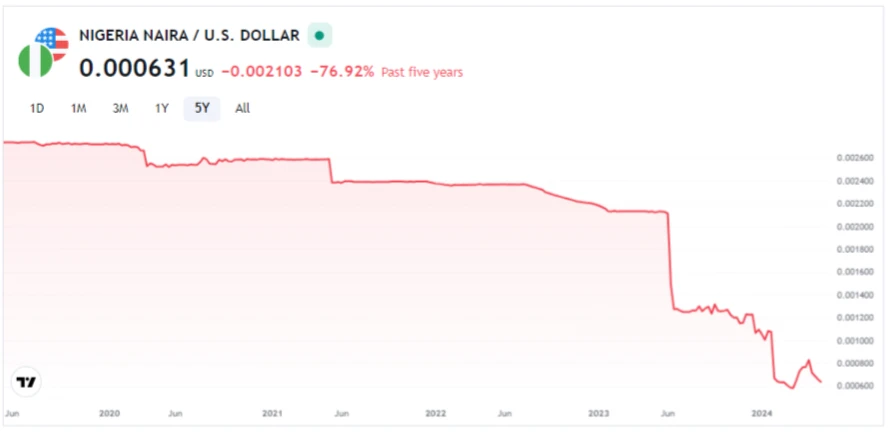- The Nigerian government is cracking down on cryptocurrency and unregistered forex traders.
- New regulations aim to ban peer-to-peer (P2P) crypto exchanges using the naira.
- Despite previous bans, Nigeria remains a major player in the global crypto market.
- Experts argue that banning P2P transactions may be ineffective.
- The IMF suggests licensing global crypto exchanges as part of economic reforms.
In a bid to control the rapidly depreciating local currency (NAIRA), Nigerian authorities have resumed stringent actions against cryptocurrency trading.
This includes arresting suspected illegal forex traders and planning new regulations that would prohibit peer-to-peer (P2P) crypto exchanges using the naira. These moves come as part of broader efforts to protect the national currency from further decline.

Regulatory Changes and Market Reactions
Dr. Emomotimi Agama, Director General of Nigeria’s Securities and Exchange Commission (SEC), announced during a virtual meeting that new rules are being formulated to curb P2P cryptocurrency transactions.
This announcement has sparked widespread discussion among financial experts and crypto traders who doubt the feasibility of such bans due to the decentralized nature of these transactions.
Short-Lived Gains for Naira
Following initial steps taken by President Bola Tinubu’s administration in February, which included detaining employees from major crypto exchange Binance, there was a temporary improvement in the value of the naira.
However, this recovery was short-lived as recent reports indicate another significant drop in its value against the dollar despite previous interventions like interest rate hikes and treasury bill sales.

Challenges in Enforcing Crypto Regulations
Many financial experts argue that enforcing a complete ban on P2P cryptocurrency transactions is nearly impossible given their decentralized structure.
They suggest focusing on more effective economic strategies rather than attempting to control an inherently uncontrollable market segment.
For instance, Kalu Aja pointed out that personal trades between individuals are difficult for any government body to monitor or regulate effectively.
The International Monetary Fund (IMF) has weighed into this issue by recommending that Nigeria should consider licensing international cryptocurrency platforms as part of its economic reforms. By doing so, it could better integrate cryptocurrencies into its financial system while ensuring proper regulatory oversight through anti-money laundering frameworks.
As discussions continue about how best to manage these challenges facing Nigeria’s economy concerning digital assets and currency stability, it remains clear that simple bans may not be sufficient or practical solutions moving forward.
Follow BITNEWSBOT on Facebook, Linkedin, Twitter, and Google News for instant updates >
LATEST POSTS
- VPS AI: Pioneering Decentralized Cloud Computing Solutions
- Ghana to Adopt Blockchain in Governance for Transparency and Anti-Corruption
- Binance Fined $6 Million by Canadian Authorities for Non-Compliance
- Verizon Proposes Blockchain Solution for Domain Registration and Device Authentication
- The Degen Express Platform; Simplifying Crypto Investments
Previous Articles:
- VPS AI: Pioneering Decentralized Cloud Computing Solutions
- Ghana to Adopt Blockchain in Governance for Transparency and Anti-Corruption
- Binance Fined $6 Million by Canadian Authorities for Non-Compliance
- Verizon Proposes Blockchain Solution for Domain Registration and Device Authentication
- The Degen Express Platform; Simplifying Crypto Investments
